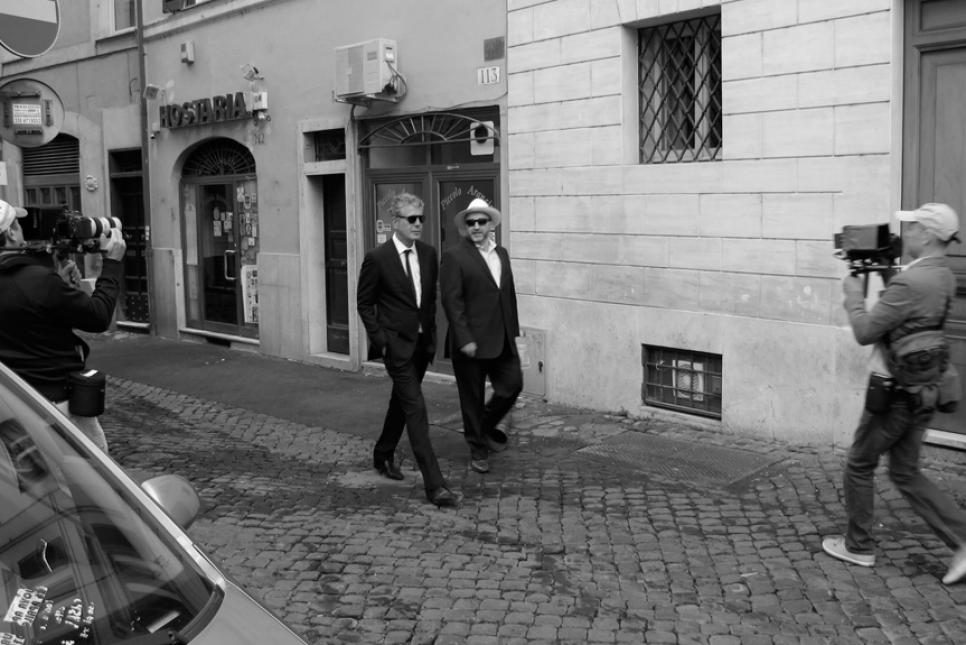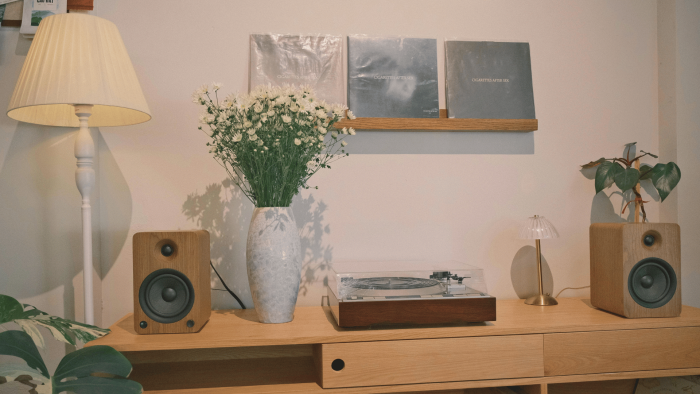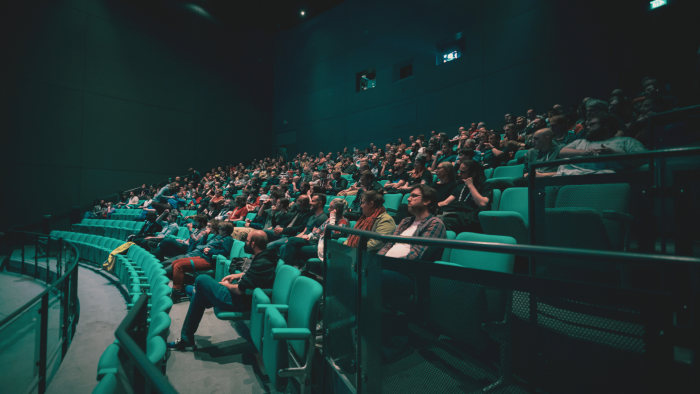Travel shows are a dicey genre, because it’s very easy to make a bad one. There’s no shortage of captivating destinations and photogenic cuisine in the world, so the shows never want for content. The liability lies with the host. You need someone charismatic enough you’ll enjoy their company, but not so wonderful you can’t swallow your resentment for their jet-setting lifestyle. You need to enjoy watching them have a good time, otherwise you won’t. And there was no travel show better at showing us a good time than Anthony Bourdain’s oft-imitated No Reservations, which made its debut on the Travel Channel all the way back in July 2005.
“I write. I travel. I eat. And I’m hungry for more.” Bourdain’s iconic voiceover introduction perfectly captures the ethos of the series. Spanning nine seasons, all on Amazon Prime, No Reservations still deserves its reputation as the best travel series of all time because Bourdain delivers on this promise in every episode. He’s got a novelist’s eye for the world at large, finding commonality and connection with everyone he encounters, from roadside pupusa vendors to Michelin-starred omakase masters. He embraces seamy underbellies and sketchy dives—and never glosses over real-world conflicts. His adventures span the globe from Mumbai to Manhattan, Beijing to Baltimore. He keeps the food at the center and reminds us that “yum!’ is a universal language.
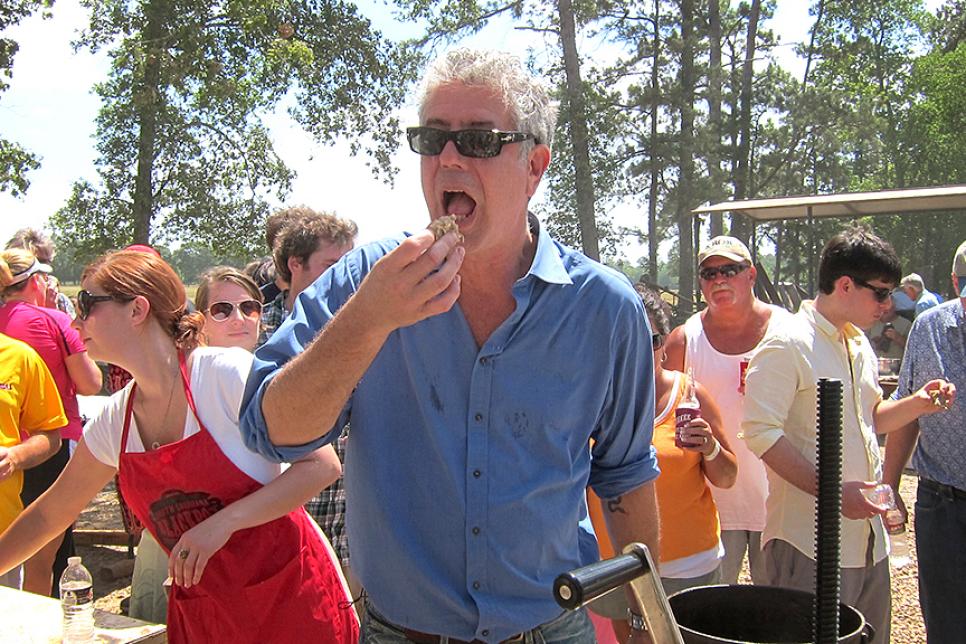
Bourdain visits Cajun Country.
Screenshot via Travel Channel
World Hunger
Wanderlust is a primal urge and, like all such urges, carries risks akin to its rewards. For most of human history, this meant literal wandering. You’d hoof it for a few weeks or months, coasting on the kindness of strangers, or sometimes stymied by their not-so-kindness. Today the risks are mostly financial and convenience-based. You’re not as likely to get waylaid by masked bandits so much as you are an incompetent airline. And a fool and his money are often parted by any number of scams and tourist traps in faraway locales. The eternal conflict of travel lies between safety and authenticity, a line that No Reservations walks with ease.
The breadth of Bourdain’s gastric adventures cannot be overstated. An obvious choice like Paris or New York is contrasted with a trip to Uzbekistan, where a plate of tepid organ meat is a delicacy that’d be an insult to turn down. It’s fundamental to what makes his travel show premise work: a sort of self-imposed dare that he can go anywhere and uncover its essence for us. It isn’t couched in arrogance either, rather, Bourdain’s unwavering faith in the belief that all people everywhere love food. Odds are, if you’re a viewer, you completely agree.
No Reservations consistently delivers that idealized travel experience. No one wants to feel like a tourist when going to a world-class city, but you also want to soak up as much culture as you can to get a sense of someplace that, presumably, required considerable personal and financial logistics to visit. And while you may not have access to Bourdain’s seemingly endless roster of friends and local guides, you do have access to the lessons he learns along the way. It isn’t much of a stretch to start to ask yourself how Bourdain would visit your hometown in order to discover it for yourself.
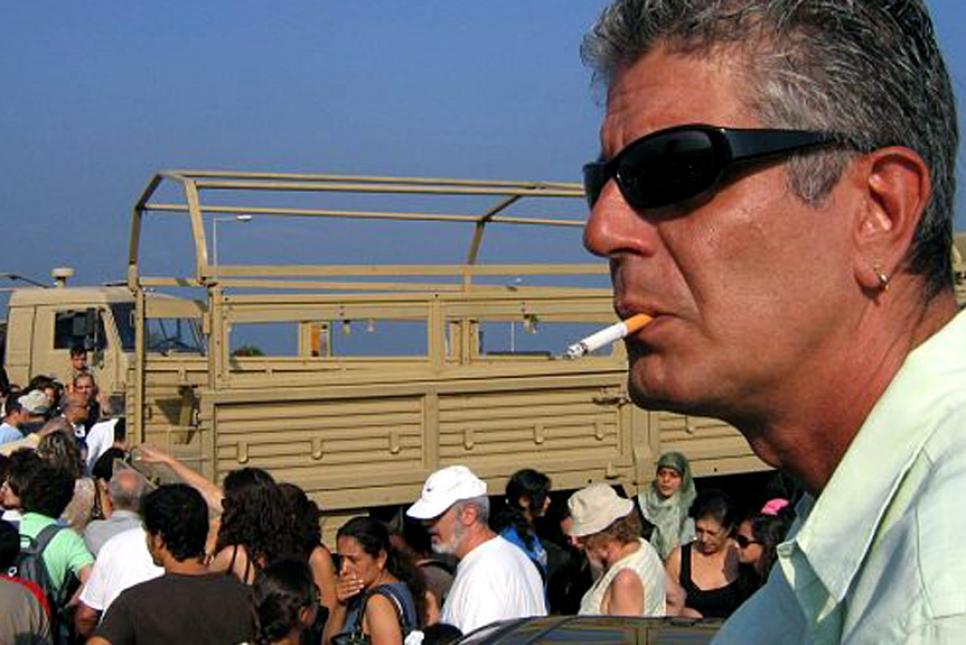
Bourdain in Beirut amid the outbreak of war in 2006.
Screenshot via Travel Channel
Binge Eating
No Reservations deserves a special place in the vast sea of streaming content because, despite being nearly 20 years old, episodes don’t feel dated or anachronistic. Authenticity never expires, and Bourdain’s travels across 142 episodes provide one of the best binge-able titles around. Each episode is a self-contained adventure with a handful of perfectly defined segments. You can watch it in 10-minute bursts across a busy work week. You can run it in the background doing your weekend cleaning routine. And you can easily sink into the couch, order something fancy on Seamless, and run through a half-dozen episodes in a sitting.
You will likely feel a melancholic twinge going through these episodes when you inevitably remember we lost Bourdain to suicide in 2018. If you’re a fan, then odds are your algorithm has kept his memory alive and well through assorted clips and quips, but sitting with him one 45-minute episode at a time hits different. It’s a reminder that all who wander are not lost, and we should consider ourselves lucky to be able to share the road with such a capable and gracious host—who always left us hungry for more.

